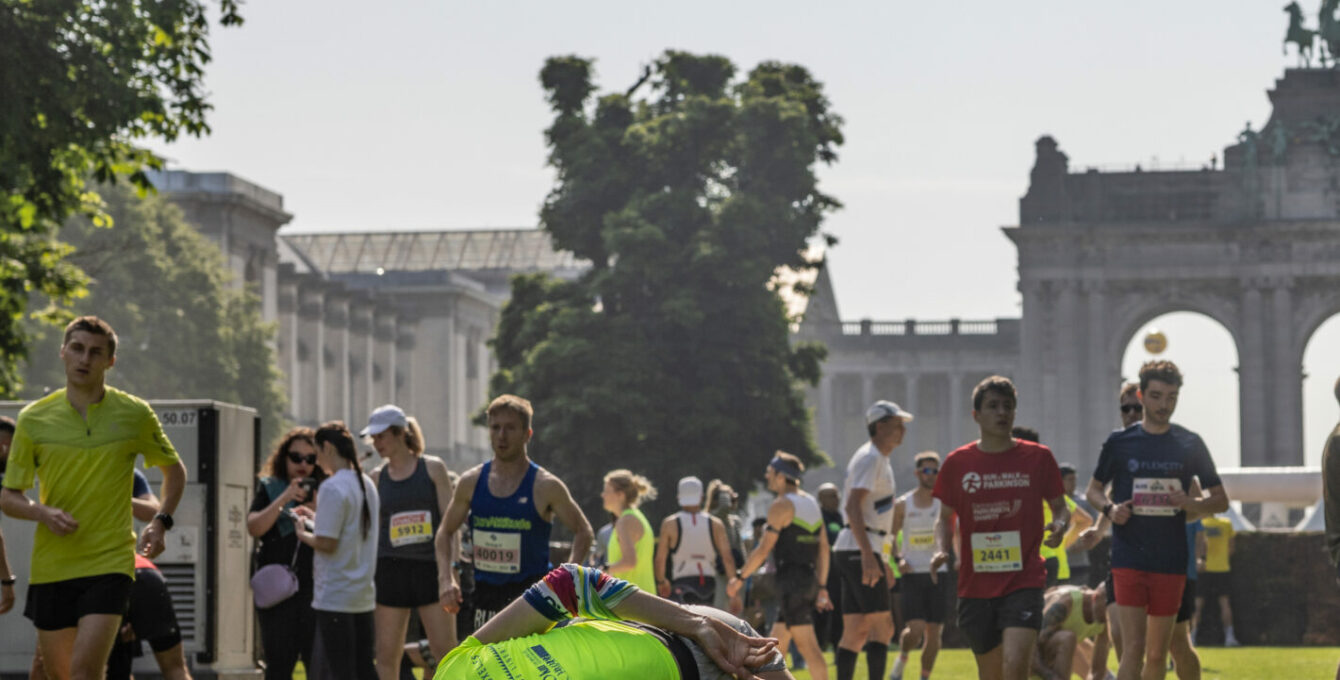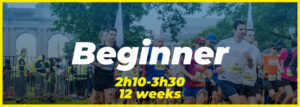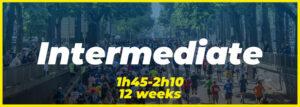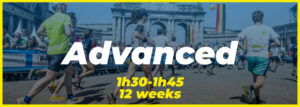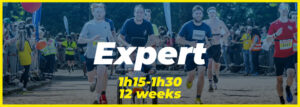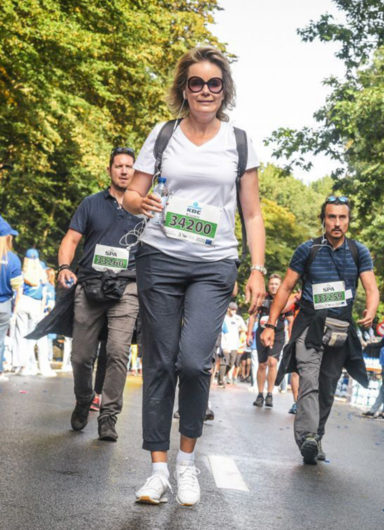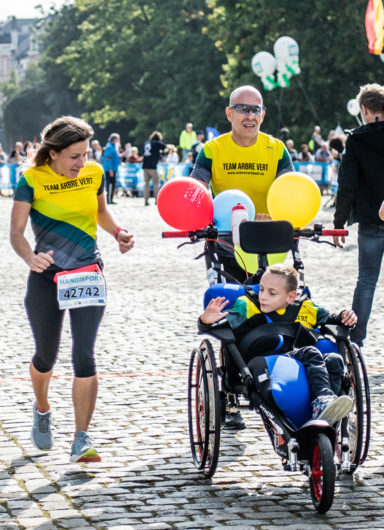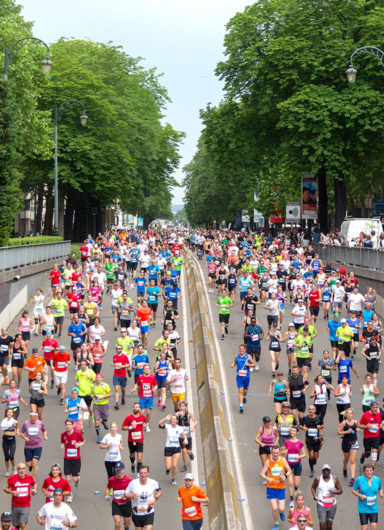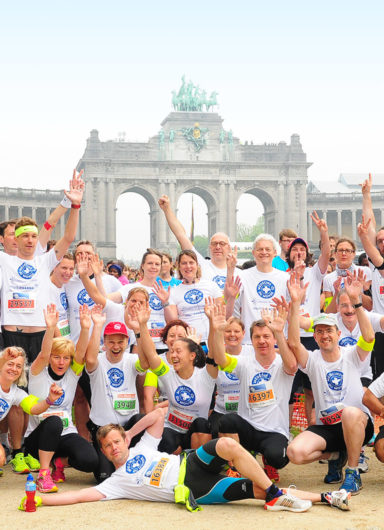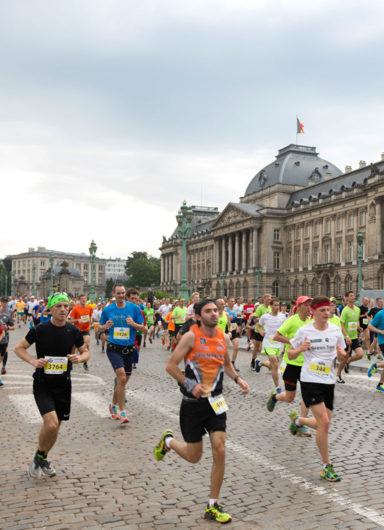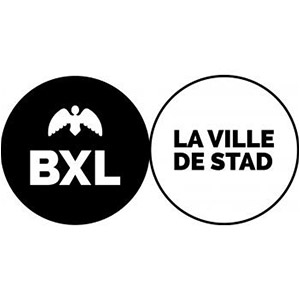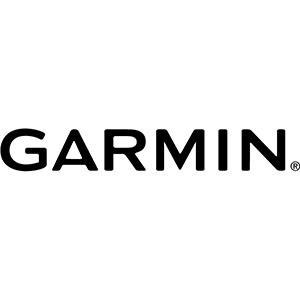Training plans
To help you prepare for this edition of the “20km of Brussels”, John Heymans, professional athlete & olympian, developed free training plans.
If you would like personalised advices from a professional coach, please contact John Heymans.
RUN FOR ZERO
Are you training for the “20km de Bruxelles”?
Here are the medical recommendations to make it a success. These tips are provided by Bastin Professor at UCL. Always consult your doctor in case of specific questions. Prior formal medical assessment is essential if:
- respiratory, neurological, diabetic;
- taking antidepressant-like drugs, antipsychotic, diuretic, antidiabetic;
- you have been sick in the days before the race fever, colds, pharyngitis, bronchitis, diarrhea, vomiting;
- you are over 50 and do not regularly play sports.
Prevent heat stroke:
- Avoid alcohol, coffee, all “energy” drinks ;
- absolutely avoid taking substances such as cannabis, LSD, cocaine, amphetamine, …;
- ensure quality sleep in sufficient amounts 3 days prior to the race;
- the day before the race have light meal; prefer a diet rich in ‘slow’ carbohydrates such as: pasta, rice;
- to facilitate the evaporation of perspiration, wear appropriate clothing; ventilated clothing, loose, breathable.
- Appropriate hydration is essential: before, during and after the race. It is based on a solution physiological associating water, salt, sugar: water 1L + 10 pieces of sugar + 1 teaspoon of salt.
- within 2 hours before the race, drink 500mL;
- during the race, drink 250mL every 20 minutes the water will be available on the course
- within 6 hours after the race, drink 150% of your weight loss (eg if you lost 1kg, drink 1.5L)
Listen to your body during the race – stop and ask for help if:
- you feel pain in your chest or arms
- you are unusually breathless or exhausted
- you have a light-headedness, blurred vision
- your behavior is unusual: tears, laughter, abnormal annoyances you have nausea or vomiting, diarrhea
Spa tempomakers
This year, Spa provides 22 pace-makers for the participants of the 20km of Brussels!
During such an endurance race, rhythm and regularity are very important, both for professional runners as for the pure enthusiasts. Therefore, the Spa pace-makers help you to run the 20km in a specific time. There are 5 reference times, from 1h20 to 2h15. The pace-makers are recognizable thanks to colored flags depending on the selected time.
Would you like to follow a Spa pace-maker ? Look for the flag with the right color according to your objective:
- 1h20: Follow the blue flag
- 1h30: Follow the red flag
- 1h45: Follow the green flag
- 2h: Follow the purple flag
- 2h15: Follow the orange flag
Good luck!
STRETCHING
STRETCHING BEFORE RUNNING OR WEIGHT-LIFTING
STRETCHING THE SHOULDERS
Stand, feet apart, leaning forward, hands against a tree or other support at chest level. Let the head fall as far forward as possible, keeping the arms extended. Hold for 20 to 30 seconds.
STRETCHING THE HIPS
Bend one knee extending the opposite leg behind. Place the hands either side of the front foot. Lower the knee of the extended leg to touch the ground. Lift the back knee off the ground while keeping the hips as low to the ground as possible. You should feel the muscles in the front of your thigh stretching. Hold for 20 to 30 seconds. Repeat with the other leg.
STRETCHING THE INNER THIGHS
Stand, feet apart, half squatting. Bend one knee and extend the opposite leg as far out to the side as possible, pressing the inside of the foot to the floor. Hold for 20 seconds and repeat on the other side.
STRETCHING THE QUADRICEPS
Stand on one leg, supporting yourself with one hand against a wall. Grasp the ankle of the other leg and pull it up until the heel touches the buttocks, keeping the thigh vertical, in line with the body. Keep the torso straight. Hold for 20 to 60 seconds. Repeat on the other side.
HAMSTRING STRETCH
Stand on one leg, placing the other on a table or other support of similar height. Face the table. Straighten the raised leg while leaning slightly forward, lowering the head toward the knee, hands on the ankle. Hold this position for 20 to 60 seconds. Repeat on the other side.
STRETCHING THE CALVES
Stand, facing a wall, feet apart and arms extended to meet the wall. Extend one foot backward and shift your weight to that foot. Keeping the knee straight and the foot flat on the floor, lean into the wall, pulling with the hips. Hold this position for 10 seconds. Then bend the knee slightly. This stretches the Achilles tendon. Hold for 10 seconds. Repeat on the other side.
AFTER ANY RUNNING OR WEIGHT TRAINING SESSION
STRETCHING THE SHOULDERS
Stand, feet apart and hands clasped behind your back. Bend forward at the waist bringing your head as near as possible to your knees and extending your arms behind you. Hold for 20 to 30 seconds.
STRETCHING THE QUADRICEPS
Get down on your knees. Sit on your heels with your feet extended to lie flat behind you. Placing your hands behind your heels, arch your back and head while lifting the hips as high as possible. Hold for 20 seconds.
STRETCHING THE INNER THIGHS
Sit on the floor. Place the soles of your feet against each other, knees extended to the sides. Keeping your knees as close to the floor as possible, lean gently forward.
HAMSTRING STRETCH
Seated on the floor, with knees bent, take your feet in your hands. Slowly extend your legs, keeping hold of your feet.
STRETCHING THE CALVES
Stand on your toes on a step or on the edge of a kerb. Shifting all of your body weight to one leg, lower the heel as far as possible.
STRETCHING THE BACK MUSCLES
Lying on your back, raise your legs and hips into the air, supporting your hips with your hands, elbows on the floor. Slowly lower one foot to touch the floor behind the head, then return it to the vertical position. Repeat with the other foot. Then, lower both feet together to touch the floor behind the head and extend the arms to touch the toes with the hands.
